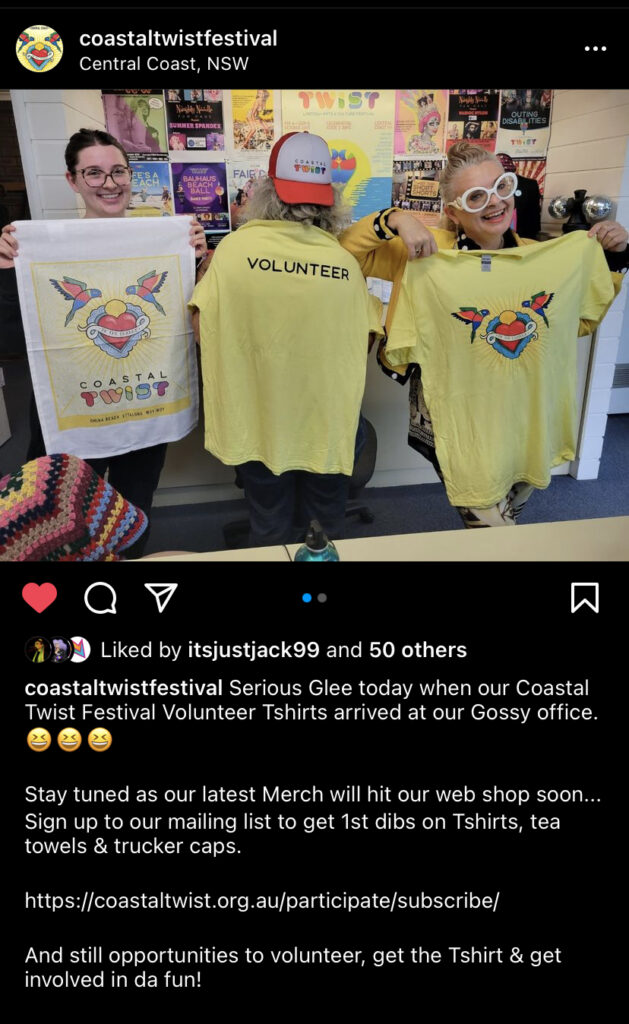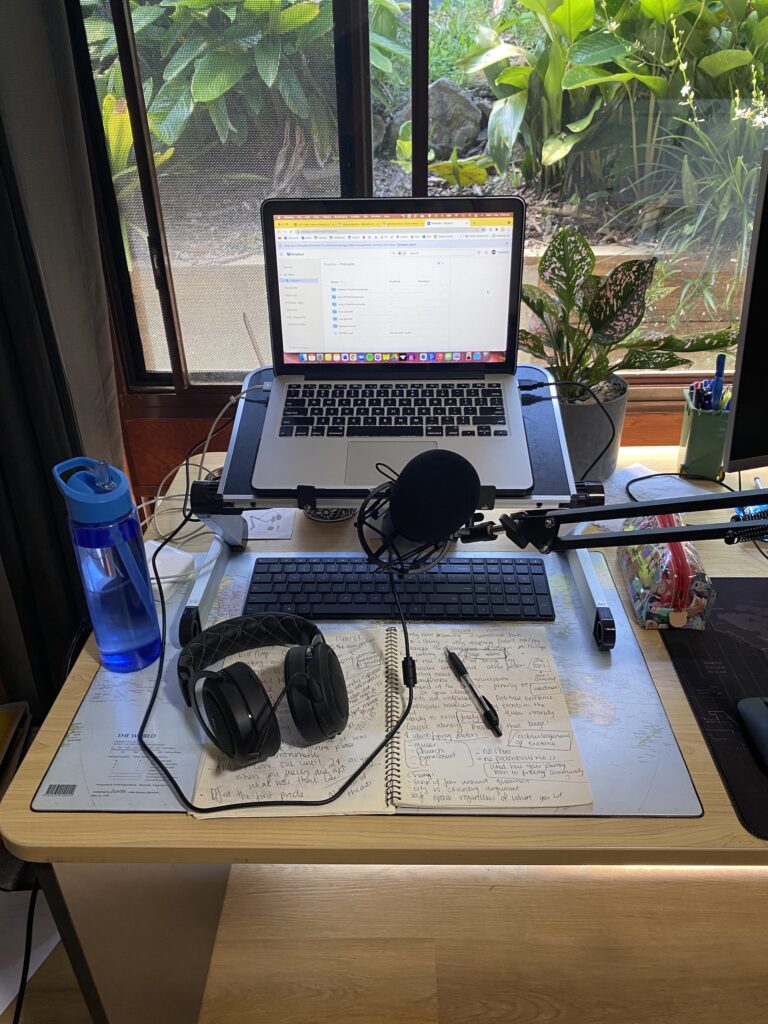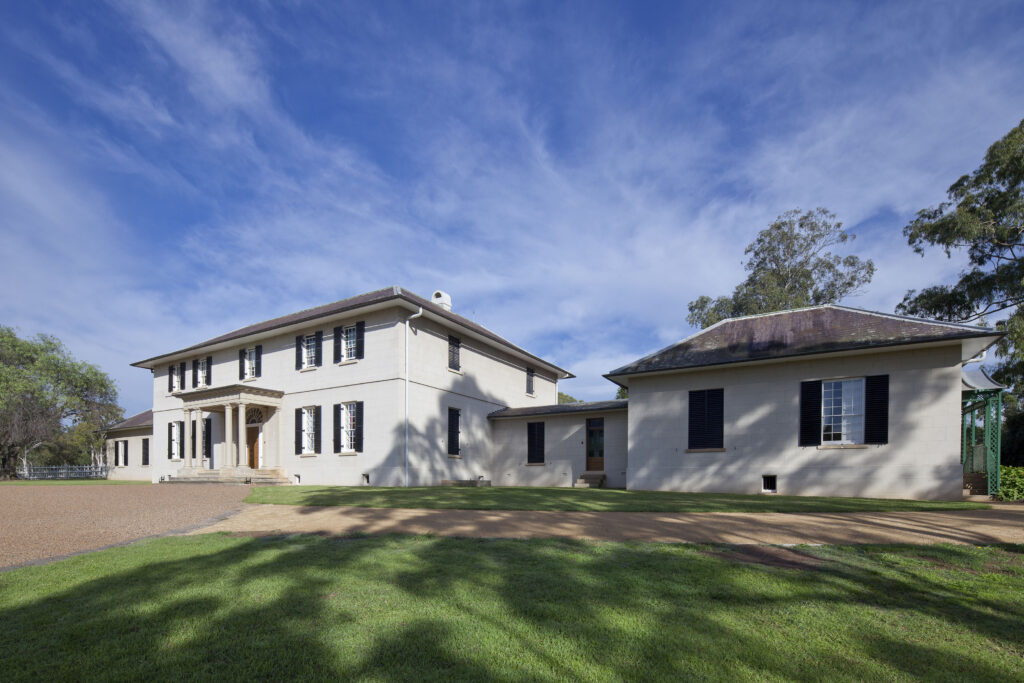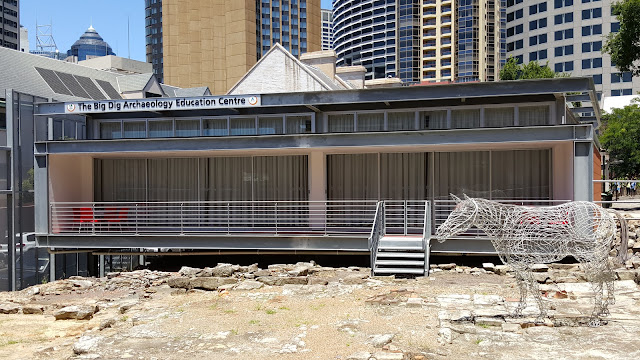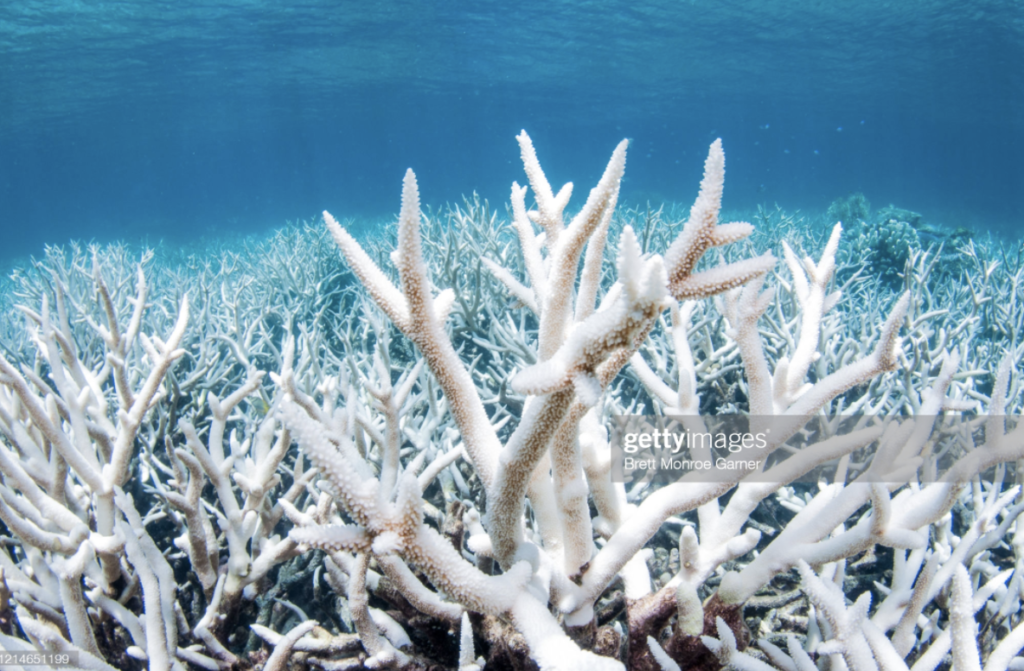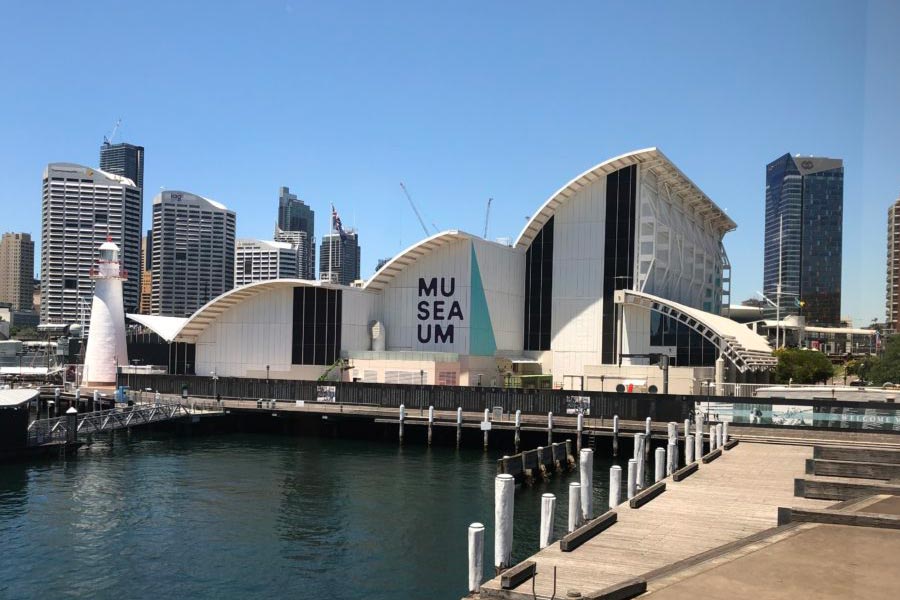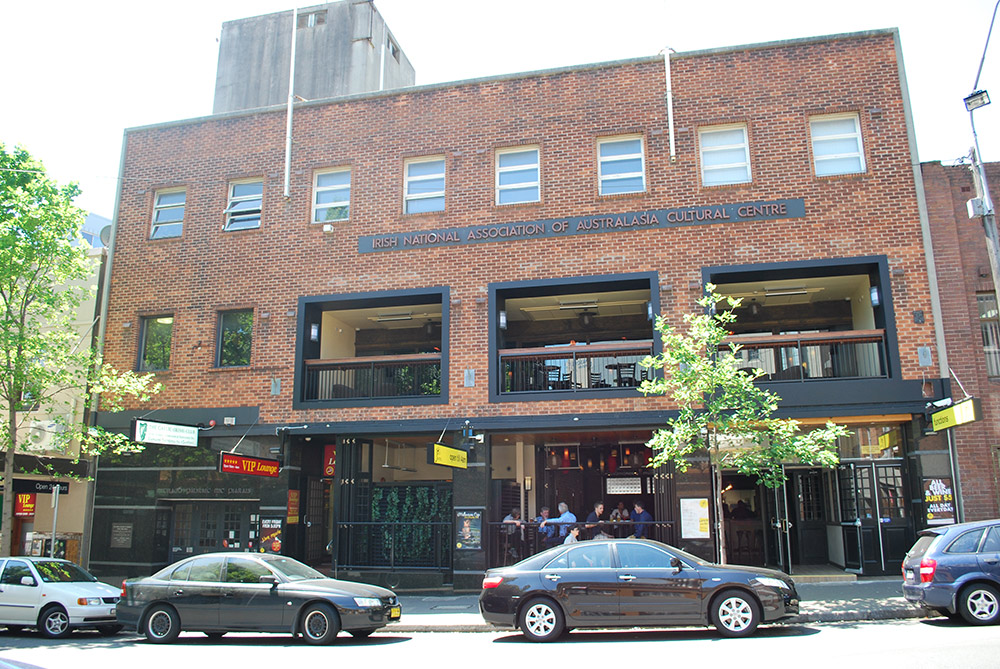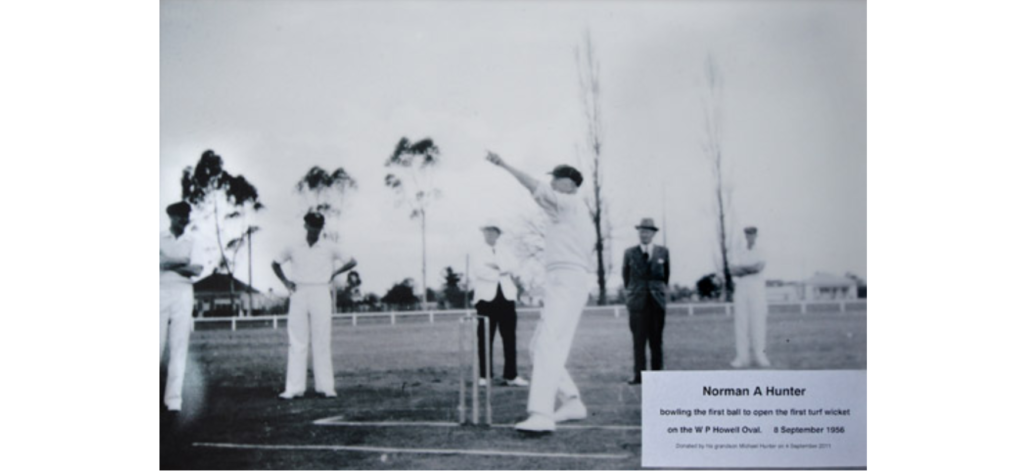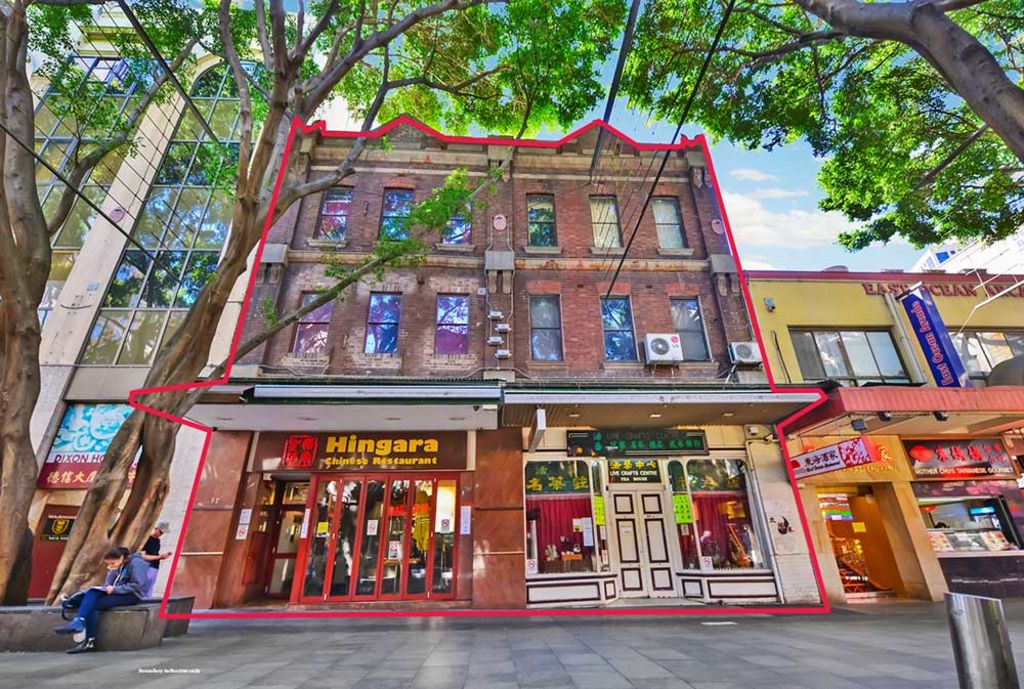
What is novel or innovative about what I have done?
For me, doing translation work is not something novel. As an English learner, translation is part of my life, and my ‘translation career’ starts at that time. I think the novel and innovative part for me in this project is that I can work with an organisation and do something that can directly contribute to society. I can submit the translation as my major project in this unit instead of a regular academic essay. It is different and innovative for me because I can participate in society but not sit in the library and write something that I do not know whether it contributes to the organisation instead of contributing to my credit point and helping me graduate.
Who will benefit from this work/project?
Preservation of this shop, actually the entire building, is essential for studying Chinese Australian history, and it provided the history of Dixon Street. So I think the public and the scholars will be benefit from this project. The historian who studies Chinese Australian history has a place for them to research Chinese Australian history. For the Chinese Australians, they have a chance to learn and look at the cultural relic about their ancestor’s past. For the others, this is a place to learn the Chinese life and learn about Chinese culture.
What is significant or important about my work?
My work is essential because the evidence I provided can help the Society to negotiate with the developer. I have to do it because I can read Chinese characters and understand traditional Chinese content, which allows me to have more sources for collecting evidence. Moreover, the Chinese cultural background helps me understand some cultural material and I can do a better translation and explain the newspaper to the audience.
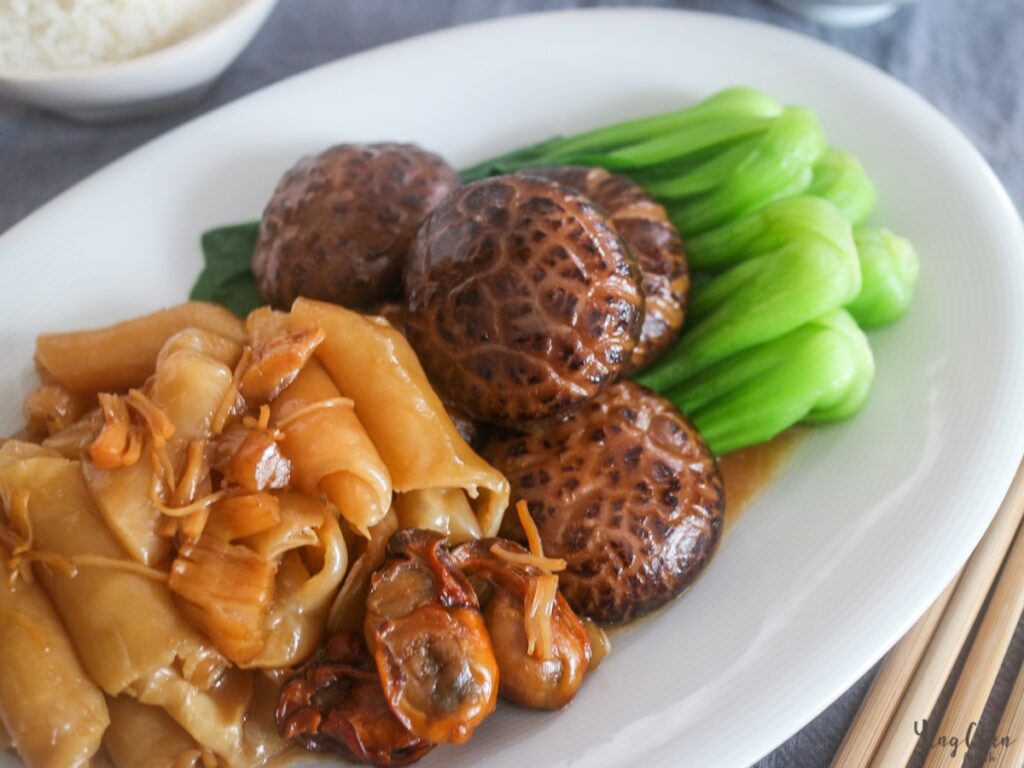
A common dish that the Chinese will have in Lunar New Year.
How to present my work?
I will be presenting my work in document style, a newspaper article or advertisement at the top with the translation of the content below the newspaper.
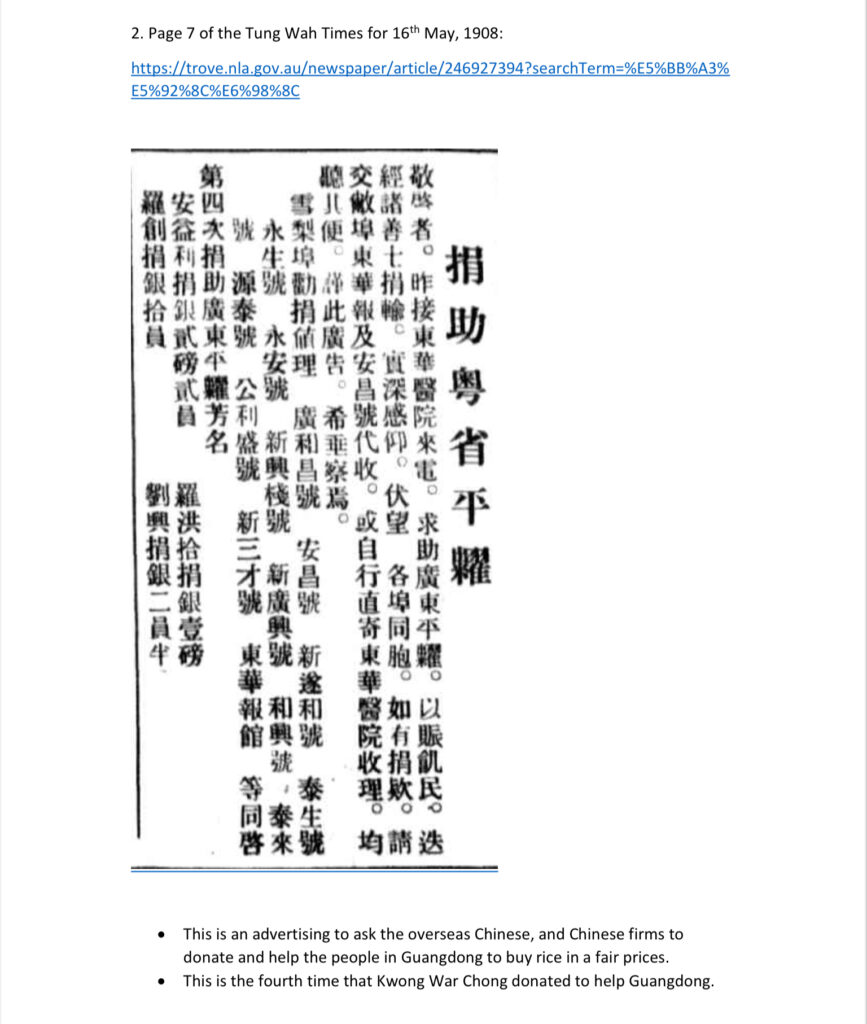
Furthermore, I have made a form for the import list of Kwong War Chong and attached a good explanation and some recipes for the non-Chinese culture background to understand how the Chinese will use or eat the goods that appear in the import list. This presenting form will be the most straightforward way to show the information I want to tell. Trove is my media and an excellent helper to search for the newspaper content I need to access the newspapers from the past. My work will show the audience life of history, Chinese economic history, and the social history of the Chinese Australian society, which can prove the uniqueness of Kwong War Chong.

